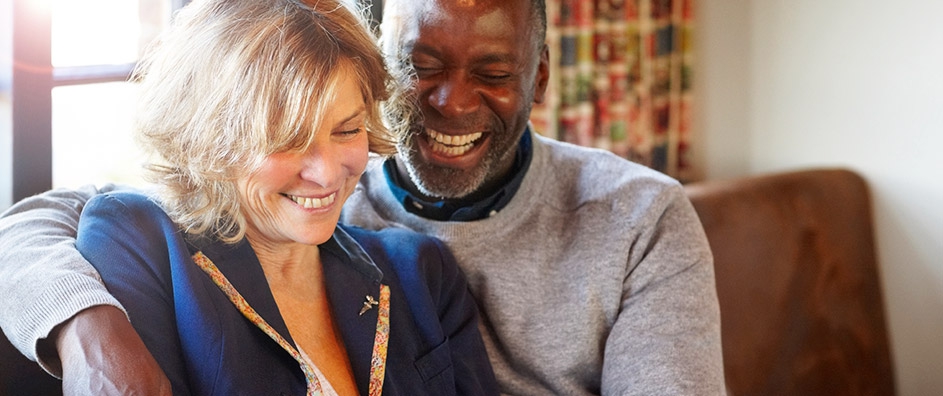The views expressed in our content reflect individual perspectives and do not represent the authoritative views of the Baha'i Faith.
I’ll take your bad days with your good
Walk through this storm I would
I’d do it all because I love you, I love you.
-“Unconditionally” – Katy Perry
Do you believe in unconditional love?
Katy Perry’s song “Unconditionally” sweetly and magically sums up my own idea of unconditional love. Lyrically, this song hints that it entails accepting someone completely, as when Perry sings, “come just as you are to me.”
“[Taking] your bad days with your good” reinforces the concept of loving someone regardless of circumstances, mood, or any internal or external factors.
We sometimes associate unconditional love with altruism, or selfless concern for the well-being of others. One online dictionary defines it as a type of affection without limitations or conditions. In other words, unconditional love involves complete acceptance of all flaws, selflessness, and steadfast devotion, with no conditions attached.
Is such a love even possible, you might ask?
Let’s examine some possibilities, beginning with parental affection. We might imagine that the idealistic feelings a mother first has for her baby should include unconditional love, meaning that no matter what the child does or says, her love for her child remains unwavering. If her child makes mistakes, she still loves him. Whether rich or poor; fat or thin; successful or struggling; she loves her offspring. Despite disagreements or different beliefs, her love for her child remains unchanging. Unconditionally means just that: no conditions or requirements attached to the relationship.
While that example might describe our lofty ideal of a parent’s love for her child, what about the love between a married couple–could spouses possibly experience this kind of love?
I believe they can, because I’ve experienced unconditional love. The love between my husband and me definitely falls into this category. We love each other regardless of sickness, mistakes, financial hardship, or any other of life’s inevitable trials and difficulties. I’ve come home from tough days at work, my patience spent and in an unpleasant mood, and my husband’s sense of humor, moral support, and hugs portray his unwavering affection for me. I’ve also known friends and family who’ve shown this unconditional positive regard for their mates.
What does religion say about unconditional love? Baha’u’llah said that God created humanity out of love:
O Son of Man! Veiled in My immemorial being and in the ancient eternity of My essence, I knew My love for thee; therefore I created thee, have engraved on thee Mine image and revealed to thee My beauty. – Baha’u’llah, The Hidden Words, p. 4.
Christianity, too, beautifully describes the qualities of unconditional love. Many people know the following Biblical quote:
Love is patient, love is kind. It does not envy, it does not boast, it is not proud. It does not dishonor others, it is not self-seeking, it is not easily angered, it keeps no record of wrongs. Love does not delight in evil but rejoices with the truth. It always protects, always trusts, always hopes, always perseveres. – 1 Corinthians 13.4-7.
As this quote infers, love involves kindness, selflessness, patience and acceptance, truth, trust, and hopefulness. Love does not, on the other hand, involve anger, hatred, boastfulness, grudge-holding, or jealousy. When we love each other, it should be with a ray of God’s unconditional love for us:
Beloved, let us love one another: for love is of God; and every one that loveth is born of God, and knoweth God – 1 John 4:7.
Based upon these writings from Christianity and the Baha’i Faith, we know that God created us out of love; that true, unconditional love encompasses qualities like acceptance and selflessness; and that, ultimately, we’ve been created so we might love each other.
Perhaps, while reading this article, you’ve struggled with the concept of unconditional love because you’ve suffered an abusive upbringing, or you were juggled between orphanages, foster care environments, or step-parents’ homes. Perhaps you left an abusive relationship and started a new life in a different country. These circumstances make you special and spiritually strong, but not any less capable of experiencing love.
I’ve seen amazing examples of remarkable souls who’ve experienced horrible abuse, torture, and neglect, only to develop into the most kind and unconditionally loving humans. The Tahirih Justice Center, a Baha’i-inspired organization, helps such remarkable souls–women attempting to escape situations like domestic abuse and human trafficking. These women are survivors rather than victims, learning how to move on from their violent pasts and find love and appreciation.
I believe in unconditional love. I believe it’s possible to love our children, our spouses, and our fellow human beings–unconditionally. Perhaps the question is not whether we can try or whether it’s possible; perhaps it’s simply a question of putting your love into your actions.

















Comments
Sign in or create an account
Continue with Googleor